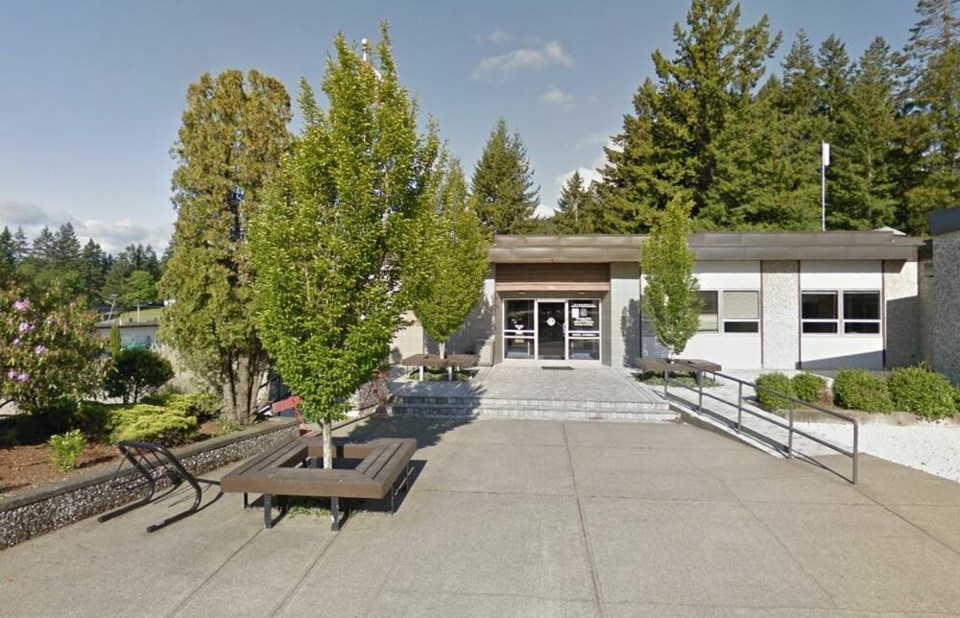Frequent policing of people living in their vehicles could drive them further underground, says a housing advocate after North Cowichan council passed new towing rules for campers and recreational vehicles that exceed their allotted time on municipal streets.
People living in cars and RVs in the Cowichan Valley and other areas are doing it because they have little other choice, said Shelley Cook, executive director of the Cowichan Housing Association. “There’s no place fundamentally for people to go or they wouldn’t be in that position.”
North Cowichan council voted this week in favour of larger fines for towing and impounding large vehicles parked past allowed times on municipal streets.
Council heard that numerous complaints have come in from businesses and residents about illegally parked recreational vehicles.
Most of the public complaints have been about Croft Street in Chemainus, between Mill Street and Alder Street, and on Duncan Street in the south end of North Cowichan between University Way and James Street. RVs parked at that location are partially on Island Corridor Foundation lands, staff said in a June report to council.
On Croft street, there are normally four to eight RVs parked in violation of the parking bylaw at any given time, the report said. “In some cases, the occupants have ‘laid claim’ to public property beyond the parking stalls by laying out private belongings such as lawn chairs and potted plants,” staff said.
On Duncan Street, there are four RVs that park at one time in violation of the bylaw.
Municipal bylaw staff have gone to that location with RCMP because of illegal activity, the report said.
Staff were told that at least one owner was dumping sewage down a manhole.
In July, North Cowichan council passed amendments relating to trucks in its traffic bylaw. It now says that vehicles with a gross weight of more than 5,500 kilograms cannot be parked on a municipal street for more than four hours.
A trailer is also now prohibited from parking for more than four hours.
Staff said that signage relating to the parking rules is being installed.
Council also added higher fines affecting towing and impounding large vehicles.
The current fee for towing and removal is $50, while impoundment costs owners $5 per day.
The new rates are not yet set. North Cowichan staff are looking at options to contract out the service.
North Cowichan does not have the resources to carry out towing and take a vehicle to a secure impoundment area, a staff report said.
Cook said the parking complaints stem from a severe shortage of affordable housing that has led to growing numbers of people living in their vehicles.
Some park in big-box-store parking lots, she said, while others go to more remote places such as fields, backyards and private lots. “There are indications of it all over our communities if we just open our eyes.”
Driving the unhoused farther out of town with punitive measures means they could become increasingly isolated from community support services, which could put them at greater risk, she said.
Cook doesn’t know how many people are living in their vehicles in the Cowichan Valley, but noted that April’s point in time count for the Cowichan Valley counted 223 unhoused people.
Point in time figures are typically lower than the actual number because not everyone was counted — including those living in vehicles or sleeping on couches.
“Fundamentally we have to have massive investment in social housing and rapidly scale up the development of housing,” Cook said.
“I would love to see a world where housing is treated as a human right and people are able to live with dignity in a form of housing which is safe and reduces harms to their health.”
Bylaw compliance officer Dave Elley said the municipality works on a complaint-based system, starting with education, and strives for voluntary compliance, except in emergency situations requiring immediate action.
“We also understand the nature of today’s homeless crisis our province is in. If there is a complaint made that involves a person living in an RV or trailer, bylaw officers make every effort to work with that individual to provide them with the correct contacts through the province and social services to either find housing or a place to go.”
>>> To comment on this article, write a letter to the editor: [email protected]



